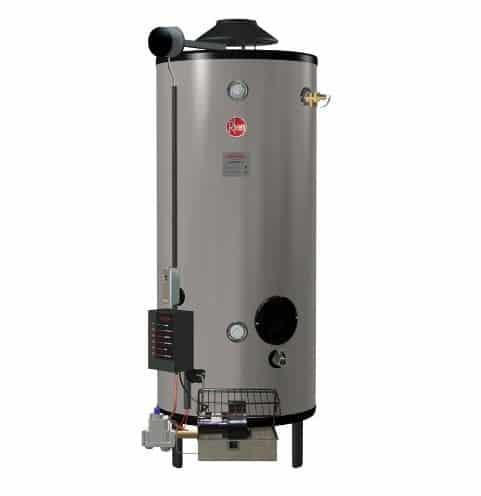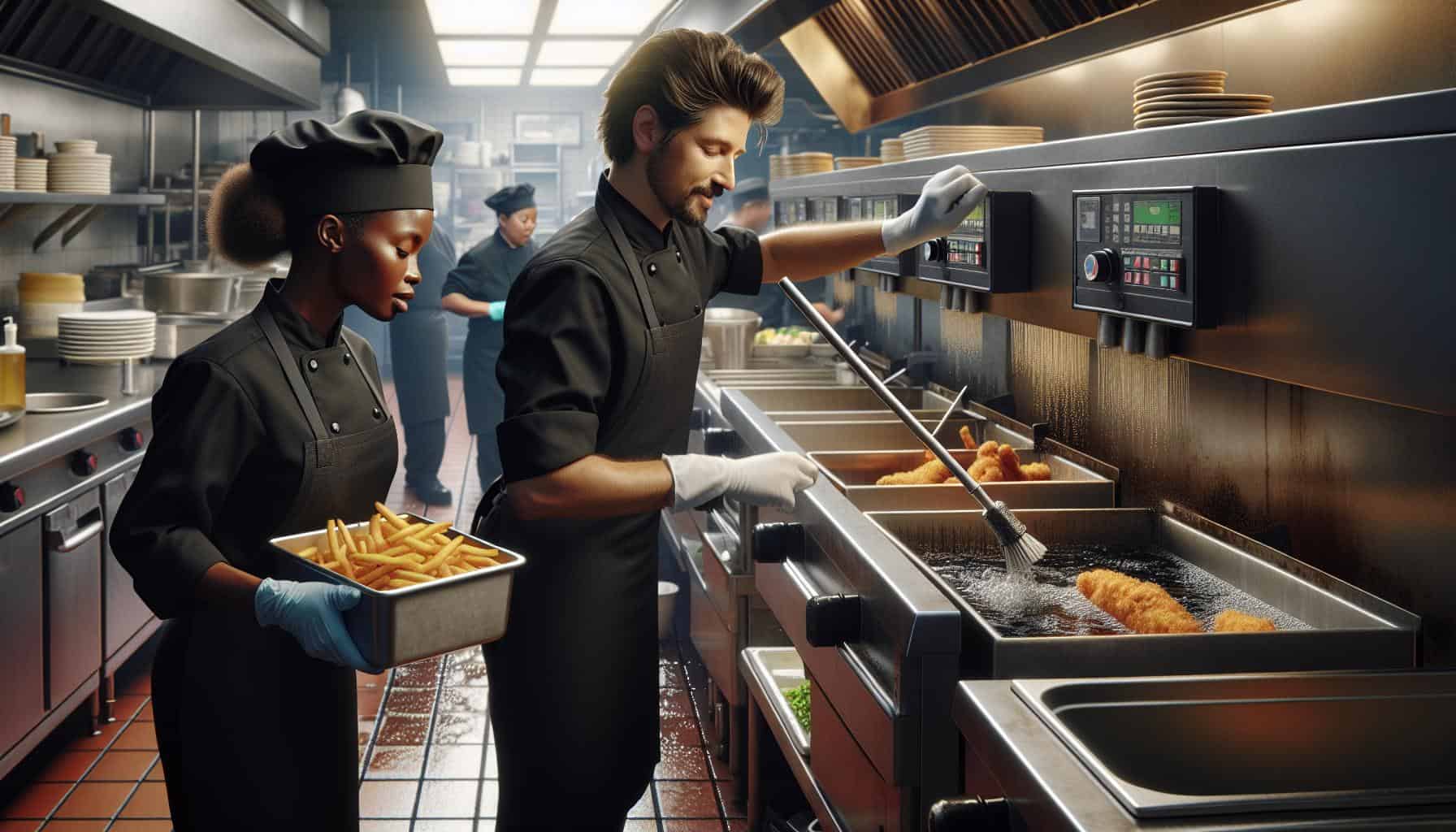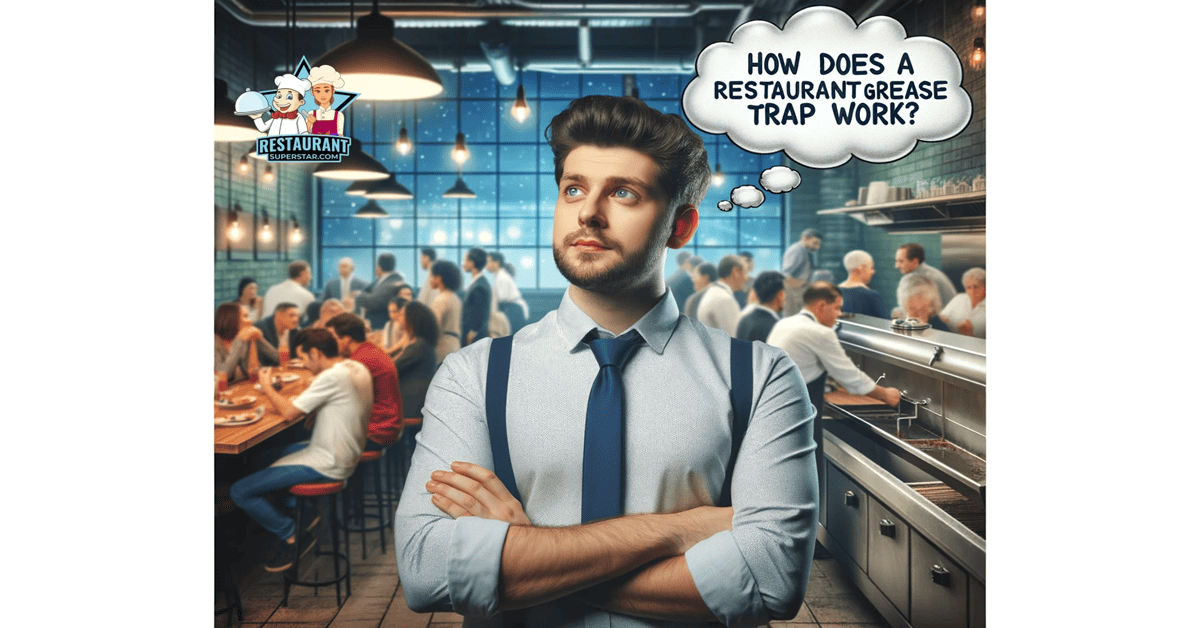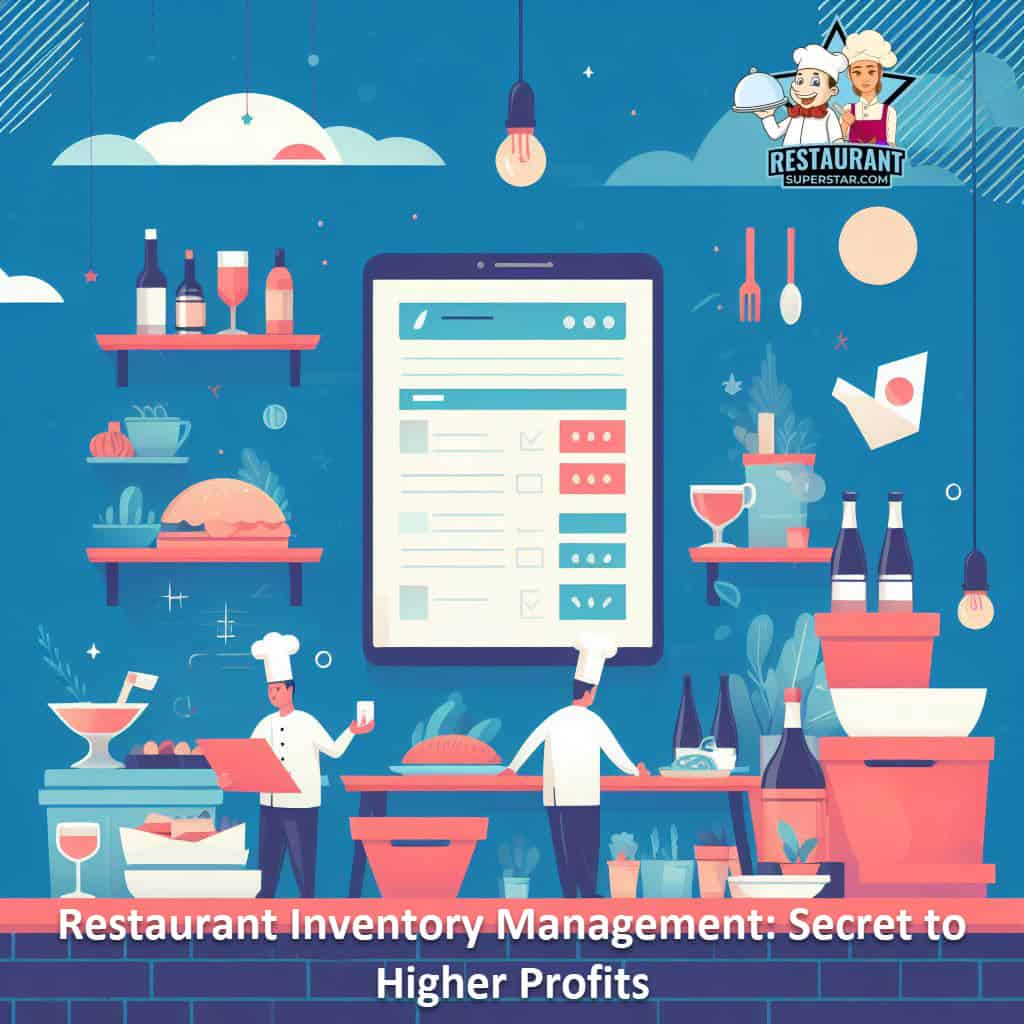What Size Water Heater Do I Need for Restaurant?

Hey there, if you want to know “What size water heater do I need for restaurant?” you are not alone. If you’re a restaurateur, you know how essential sizing is to your business performance when shopping for a new or replacement water heater for your restaurant.
Different industrial water heater tank sizes are available to suit your needs based on how much hot water you require to operate your restaurant.
Given the options for commercial water heaters, the information below will help you decide. How do you determine the right type and size of the water heater when there are so many options? Let us assist you on the proper path with our extensive article guide.
What Size Water Heater Do I Need for Restaurant?
What size water heater do I need for restaurant? A water heater with a minimal storage space of ten gallons must be required for food operations that only manage and sell prepared meals.
Now that we know the exact size let’s discuss extensively other factors.
What Factors Go into Correct Restaurant Water Heater Sizing?
You want to accurately consider crucial factors that go into correct restaurant water heater sizing, such as
- Your business operating hours. Is it round the clock, or just during lunch, etc.)
- The quantity of hot water-dependent installations includes the dishwasher, bathtubs, pools, sinks, and others.
- Your busiest period. When is your restaurant using more hot water?
- The location of your restaurant. That is for season influence based on water temperature.
- Venting specifications and/or limitations
- Restrictions on the size of the footprint
Correct sizing relates to more than just the unit’s physical size; that is only one of the contributory factors. Commercial water heater models can be distinguished primarily by their input and storage capacity.
According to model statistics, it ultimately comes down to how many gallons of hot water the tank can hold and how much electricity the heating element needs to boost the water’s temperature.
You must first determine your company’s needs for hot water before you can decide which tank size and power input combination are best.
The precise water heater (or boiler or group of water heaters) that will deliver adequate hot water to your restaurant that will ever need it is what we’re searching for.
How to Determine Sizing for Your Commercial Hot Water Heater?
Using the water heater’s heating capacity as a denominator, figure out how much water you’ll need to run the business for a full day.
Double that figure by the number of hours per day when you anticipate using the most water. An approximate measurement of the hot water tank your business requires will be provided to you.
Purchasing a water heater for a commercial building differs considerably from that of a private residence. There are typically three different common sizes of residential water heaters to accommodate households of varying sizes.
If you run out of hot water during a shower or a laundry session, waiting for the water heater to replenish itself and continue is only mildly inconvenient. Whenever a company decides to replace its industrial water heater, there are many factors to consider and options to weigh.
Though it’s best to let the pros handle the logistics, these are some considerations they make.
Maximum Hot Water Usage Rate
First, you should consider how much hot water you use at once. Since your business can’t afford to wait for the hot water to be fixed, this is paramount. To illustrate, picture the restaurant owner attempting to function without access to hot water.
Dishwashing and refilling water supplies are only two examples of the essentials that can’t be done without running water. Today, businesses need varying amounts of hot water.
The maximum pace at which your company uses hot water daily may also dictate the tank size you’ll need. Your daily hot water consumption is probably not as high as it might be. Consider the hours you’ll be awake the next day to determine how much water you need. This figure will be used in the following computations.
Hourly Input
Knowing your dump load is the first step; the next is understanding each system’s hourly BTU intake. Based on the initial and ending temperatures of the water, this value determines how many gallons of hot water may be produced each hour. These final two figures may change depending on your environment and the water temperature required for your business to operate.
The hourly input determines how quickly you can replace the water you removed from the hot water tank. In gallons per hour, the total heating capacity should be calculated.
To meet your peak demand, you need it to be able to work rapidly, but you also don’t want it to have to work too hard and wear out the unit. In between two extremes, there is a thin line to walk.
Five Tips for the Best Restaurant Water Heating System
A water heater for your business is an investment, just like any other. It’s a crucial component of your establishment for some types of restaurant business.
That might have a significant impact on a restaurant’s success or failure. Therefore, as a business owner, you must consider various factors. Depending on the unit’s size and capacity, the fuel type utilized for heat storage, etc.
Now, to get things rolling. Some fundamentals to remember while searching for a business water heater for your restaurant are below.
Restaurant Water Heater
There are numerous varieties of water heaters for restaurants. You need to be familiar with the countless available styles and a little bit about each before you buy one. Water is heated by gas heaters fueled by either propane or natural gas.
Gas heaters demand a lot of upkeep and attention. Electric water heaters heat the water and maintain a predetermined temperature. Water heaters that burn oil are perfect for medium-sized restaurants. They have a storage capacity of 3 to 71 gallons.
Storage Choices
Storage tank water heaters are an alternative frequently utilized in residential and commercial settings. Tankless water heaters heat water on demand with gas or power. Such heaters can only heat the water whenever it is required.
Energy Efficiency
If you’re an expert, you must focus on the target. Every expenditure you make for your company has the potential to be either profitable or costly. The same applies when picking the ideal hot water tank for a restaurant.
Ask the salesperson about the water heater’s efficiency for usage in restaurants. Although the initial cost is high, it shouldn’t be your priority when selecting an appliance for your business.
The most prosperous business owners are constantly seeking methods to lower operating expenses. Selecting the proper restaurant hot water system for your business is one way to accomplish this.
So, before deciding, spend some time evaluating these criteria. We’re confident you’ll be able to determine that the water heaters we have to offer will be just what your business requires.
Restaurant’s Hot Water Needs
It is crucial to consider when selecting a restaurant’s water heater. A mistake in this area might cost you money and clients.
Size of Unit
Your heating requirements and the size of your structure will be significant factors. A more vital heater is what you would need whenever your enterprise uses a lot of hot water on a broad scale.
How Much Hot Water Does a Restaurant Need?
Much water is needed depending on the restaurant’s water load. Every meal served in a restaurant requires roughly 2 liters of hot water.
About 60% of this total is used during the busiest time for dishwashing. This 60%, or 1.2 gallons each meal, is a combination of water that is 140°F and 180°F in temperature.
The system must, in the end, be able to produce a sufficient amount of hot water. The water heating system’s lifespan may be shortened by an undersized system that is overworked.
How Do You Size a Commercial Water Heater?
To size a commercial water heater, these three pieces of information below will help to choose the right size effectively.
The Capacity Of a Water Storage Tank
The volume of a tank or other vessel holding the necessary hot water. When there is a high demand for hot water, the tank enables a significant volume of water to be extracted at flow rates that may exceed the water heater’s recovery capability.
The Recovery Rate/Reliability
Water raised at a specific water temperature rise and kW input, expressed in liters per hour. Another common measurement is the water heater’s “one-hour draw capacity,” or the maximum amount of hot water it can produce in one hour to meet demand at the busiest time of day.
The Water Heater’s Power or Energy Input
The energy needed, typically expressed in Kilowatts, is supplied by your choice of fuel, such as electric, gas, or oil, and used by the water heater. Adopting the old imperial system means 3,412 Btu equals one kW of energy.
The right water heater size and power rating are chosen by combining these three criteria.
The best way to choose a commercial or industrial water heater is based on how much hot water is used. The choice considers the tank size, recovery rate, and heat input.
How Many Gallons of Hot Water Does a Restaurant Use Per Day?
The estimated average hot water use for the FSR was 2100 gallons, with daily consumption ranging from 1400 to 3700 gallons. The peak demand ranged from 8 GPM during regular hot water usage to 4 pm during high hot water use periods (based on an average of over 5 minutes).
How Hot Should Commercial Kitchen Water Be?
To find out the particular criteria, you must contact your state. The U.S. Food and Drug Administration (FDA) mandates that hot water in restaurants must be at least 110 degrees Fahrenheit for hand washing; this standard applies to all areas of the establishment, including the washrooms.
The general rule is that hot water temperatures at a commercial institution must be hot enough to destroy bacteria and other germs on glasses, dishes, and cutlery, in addition to halting the transmission of germs.
For this reason, most health departments mandate that staff members wash their hands after using the restroom or handling food. However, the water in a sink used for hand washing cannot be too hot because it could scorch anyone who comes in contact with it.
Additionally, heating water past the point of necessity does not make it more effective in eradicating germs. The goal is to achieve a comfortable proportion in water temperature.
Do Restaurants Need Hot Water?
Restaurants must have hot water in the kitchen, but not required in the restrooms. If the hot water in the kitchen malfunctions, there are alternatives. The employees have access to disposable heaters and other heating options. If there is no water, the restaurant is just required to close.
Discussions regarding fundamental hygiene habits like hand washing have increased in the past year. The combo of soap and hot water destroys bacteria and aids in preventing the spread of germs and diseases.
The advantages of hot water are present at every point in the kitchen as food is placed on a plate, carried for service, delivered to the customer, and finally brought back to the kitchen. Cleaning dishes, either by hand or with a sanitizing dishwashing machine, ensures that everything on the plate that shouldn’t be there is removed in addition to the meal.
This is continued throughout your institution when cleaning the floors, tables, and kitchen equipment. Cleaning up grease, gooey buildup, and other things are always simpler with hot water and a little arm strength.
Maintaining a clean and organized kitchen benefits not only the food being made but also your crew and workers, without whom none would be possible.
Ensure your commercial water heater meets or exceeds guidelines to protect your restaurant’s patrons and staff. To keep your business going, we provide 100-gallon American Standard water heaters.
What Is the Difference Between Residential and Commercial Hot Water Heaters?
The sizing of a water heater for a residential system, such as a home, and a water heater for a commercial application, such as a restaurant or hotel, are very different.
A residence of four individuals can effortlessly work through peak usage periods and not operate hot water electrical items when people are taking showers. Thus, domestic water heaters don’t have an extensive range of size options.
Meanwhile, When precisely sizing a water heater for an industrial system, particularly one that depends on hot water to remain open, there are many more aspects to consider since commercial systems run under very diverse situations than residences.
Hotels, assisted living facilities, and apartment blocks accommodate many people sharing hot water. Commercial water heaters must be sized to handle everyone because those people cannot work around peak hours.
Because sizing is not a guessing game, commercial water heaters come in various sizes. Only a skilled service technician can effectively assess your hot water needs to identify the best equipment for your restaurant since companies create several types of commercial water heaters and equipment for various uses and applications.
How Much Hot Water Does a Restaurant Use?
Each dish ordered at a restaurant typically requires around 2 liters of hot water. During peak dishwashing activity, approximately 60% of this amount, or 1.2 liters, should be heated to 140 to 180 degrees Fahrenheit.
While some studies have shown that restaurants utilize as much as 25,000 gallons of water daily, the more typical range of estimates has the daily use of water between 3,000 and 7,000 gallons for a conventional sit-down restaurant, with an average of 5,800 gallons.
How Much Do Restaurants Spend on the Water?
There’s no need for a calculator to tell you that this adds up to tens of dollars annually. On average, a gallon costs about 4 cents. It’s safe to assume that most restaurants spend more than $8,000 per year on water.
Some research has shown that restaurants use as much water as 25,000 gallons per day, although a more realistic estimate for a sit-down restaurant is between 3,000 and 8,000 gallons per day or an average of 5,800 gallons per day. The average daily consumption of 24 liters per seat has also been cited in research.
Conclusion – What Size Water Heater Do I Need for Restaurant?
A Massive Quantity of Hot Water Is Crucial in Every Kitchen for Dishwashing and Reheating Chilled Items. Due to This, Selecting the Ideal Restaurant Water Heater Is Vital, Regardless of Whether You’re Installing a High-temperature Commercial Dishwasher or Creating a Unique Bain-marie System.
As you can see, choosing the right size for a business hot water tank may be very technical and complex. Contact your neighborhood experts when you need to replace your unit. Clean Line can assist you in selecting the ideal equipment for your business!
Jeff Smith is a Restaurant Consultant with over 20 years of hospitality experience ranging from server to owner and general manager. He focuses on Restaurant POS technology as well as restaurant marketing. Check out our world famous restaurant resources page for a comprehensive offering of hand picked resources and tools to help your business. You can also check out some of our other restaurant business articles.




